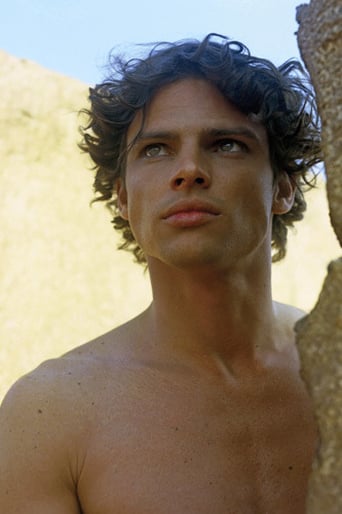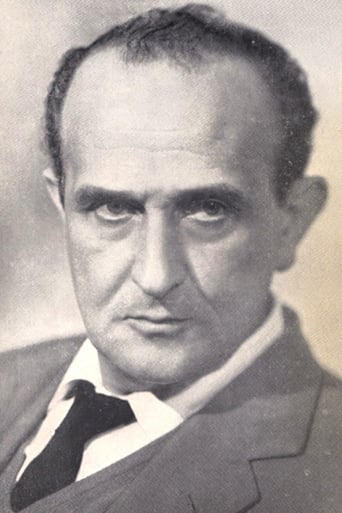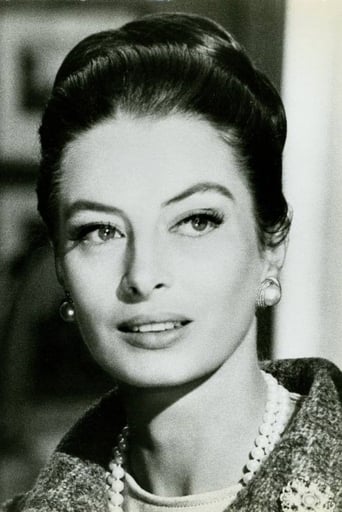BlazeLime
Strong and Moving!
Janis
One of the most extraordinary films you will see this year. Take that as you want.
Cheryl
A clunky actioner with a handful of cool moments.
Jugu Abraham
Good actors but the script based on Petronius' writings is ambitious but flawed. Petronius' own writings is partially lost. Fellini tries to connect the surviving tales and loses credibility while trying to connect the surviving fragments. The highlights: the short but evocative performance of Lucia Bose as a slave owner who frees her slaves and commits suicide with her husband who are facing bad days ahead, The others are Capucine and Magali Noel (a Fellini regular) who have a commanding screen presence in their brief roles.
Dalbert Pringle
Oh, me!... Oh, my!... Satyricon is, without question, one of those utterly grotesque and highly subjective films that I think rightly warrants psychoanalysis. It really does.Satyricon is something of a glutton's insatiable romp down "Depravity Lane". And, believe me, it's not a pleasant stroll (unless, of course, you happen to be a totally depraved glutton for punishment).Set in Imperial Rome during that mighty reign of Nero (in 60 AD), Satyricon is a literal madhouse of non-stop "WTF?" moments that will either deliver great pleasure or else sicken you with its outright repulsiveness.Filled to overflowing with ghastly-looking characters, homosexual overtones, torture and cruelty, Satyricon certainly didn't leave a whole lot to the imagination.Filmed in 1969, Satyricon was directed (with an obvious cynical glee) by Federico Fellini.Personally, I found this film's twisted story of ancient times to be quite an ugly movie-experience that, regardless of its truly weird and bizarre nature, wore out its welcome (and its novelty) within its first 30 minutes.
kanetoshindo
Satyricon based by the book of Titus Petronius from the neronian era in the middle of the first century. This was Fellini tenth film in that time when he was the most acknowledged director in the European cinema. And it was his first when he little showed interest for the legatee storytelling but his visual genius glittered in his full splendor. The brilliant cinematographer, Giuseppe Rotunno (The Leopard) and Fellini made one of the most beautiful color film ever. The settings, lights and color with the sets and costumes creates an astonishing atmosphere. But the most important part of Satyricon are the strange, grotesque, frightening but sometimes beautiful faces and bodies. Just a few films (The Passion of Joan of Arc, The Gospel According to Matthew, The Name of the Rose) can be resembled in the human face representation. The most beautiful scene is the suicide of the roman patrician. The worst thing is the horrible post-synchronization. Strange, that Nino Rota wrote a beautiful main theme for Satyricon, but it never heard in the movie. 3,5/4
bbrooks94
I'm a fan of Fellini and usually can accept his indulgence and laziness, but this is a step too far. There are some positives to what is essentially an episodic, fantastical and depraved journey across imperial Rome. For example, it looks fantastic and there are genuine moments of beauty, particularly during the opening scenes within Fellini's hellish, claustrophobic, labyrinthine Rome. However, it is ultimately incredibly boring. Appalling characterisation, acting woeful (and embarrassing dubbing throughout) and the storyline nonsensical. With La Dolce Vita, or La Strada, there is enough brilliance to gloss over Fellini's self indulgence. Here, however, it is in the open. The traditional manic laughing characters and overall melodrama become annoying beyond belief, whereas usually I find them charming. Technically, it also has flaws. The editing only adds more confusion to the film's hectic narrative. It's a vision of a nightmare and somewhere in this mess there lies a haunting masterpiece.









